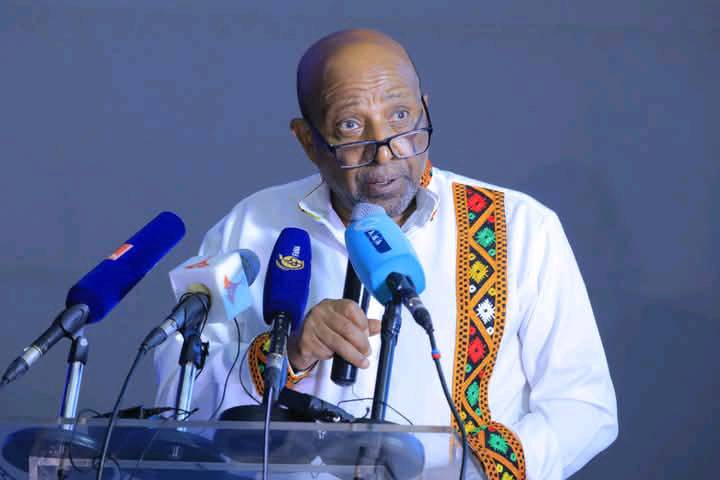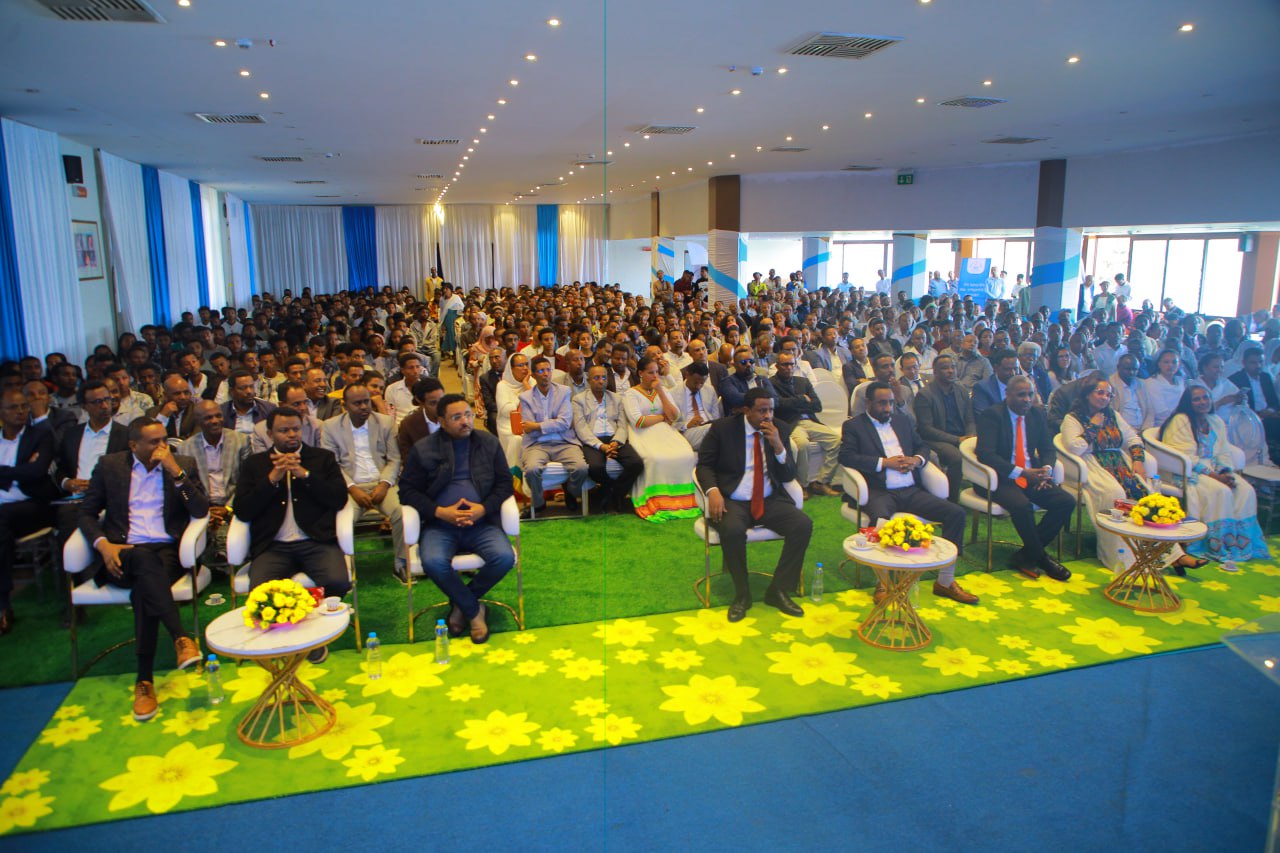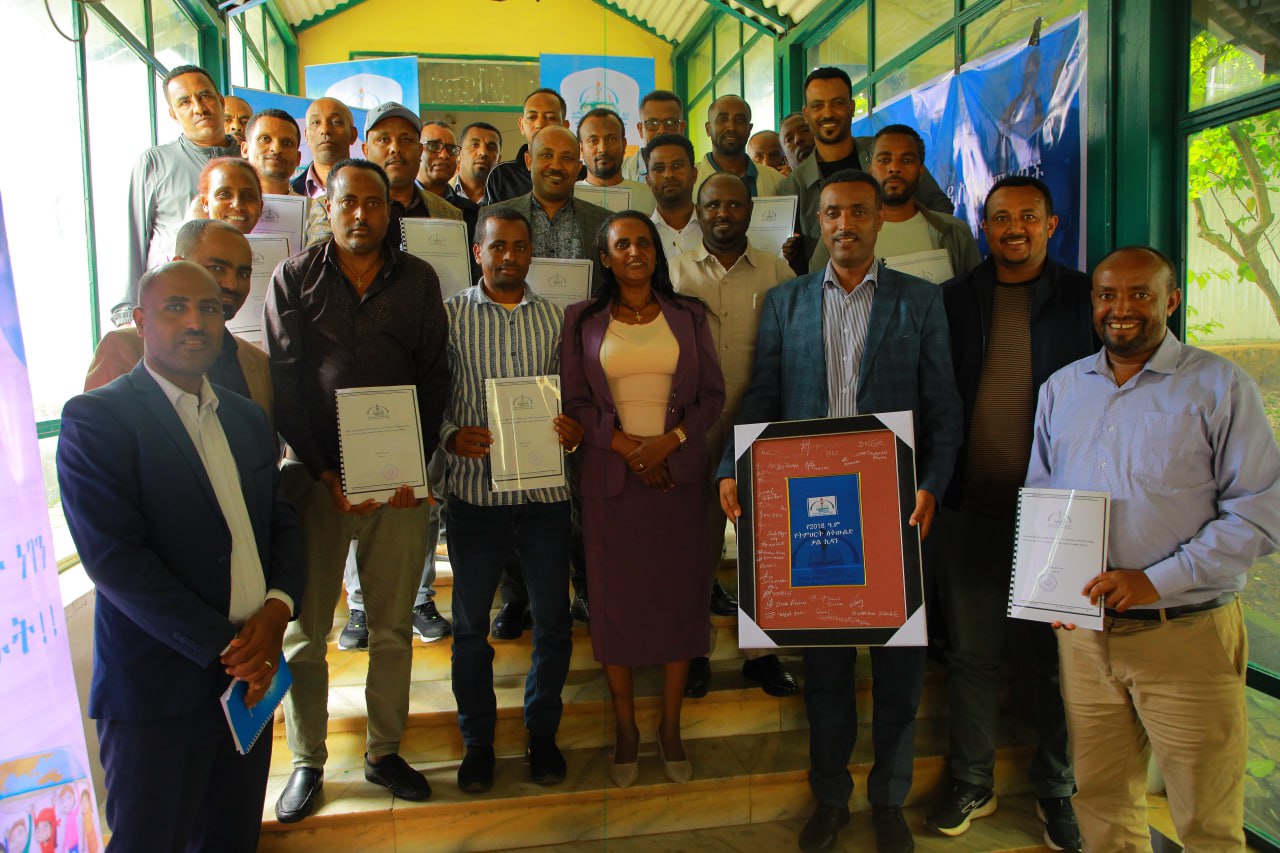“Education is not a luxury but a fundamental human right,” said Professor Berhanu Nega.
The Amhara Regional State Education Movement forum is being held. The forum is attended by Chief Administrator Arega Kebede, Speaker of the Amhara Regional Council Fantu Tesfaye, Minister of Education Professor Berhanu Nega, Deputy Chief Administrator Abdu Hussein (Dr.), Head of the Amhara Regional Prosperity Party Branch Office Yirga Sisay, Head of the Amhara Regional Education Bureau and Social Cluster Coordinator Mulunesh Desse (Dr.), and other high-ranking government officials.
Minister of Education Professor Berhanu Nega, who delivered a message at the forum, stated that they are working across the country to ensure that schools are conducive for children and enable the creation of happy children who can receive knowledge.
The Minister said that conflicts that have arisen in various regions are severely challenging the reform process they are undertaking in the education sector. He also stated that in areas where conflicts have occurred, they are seeing how these conflicts are severely hindering the future opportunities that children and youth could have gained through education.
He expressed that he feels great distress and sadness seeing the psychological scars left and being left by the conflict that occurred in the region over the past two years and its impact on the children and youth who are the heirs of tomorrow.
During the movement, he also mentioned that he has seen the desire and great diligence of the society across the country to educate their children.
He also raised that the education system is one of the sectors severely affected in areas where conflicts occur. He stated that children in conflict-affected areas are victims in many ways, more than anyone else.
“Education is not a luxury but a fundamental human right,” said the Professor, adding that it is a key tool and bridge for children to build their future destiny and unlock their potential. However, he stated that conflict and war taking place in many parts of the world are violating this right.
He also mentioned that millions of children and youth are out of school. He stated that the impact of armed conflict is significant; schools are destroyed, teachers are displaced, families leave their homes, destroying the social structure of the community built over many years and hard work, and eroding the bright future prospects of children and youth.
He stated that in Ethiopia, in regions affected by conflict as well as man-made and natural disasters, many children and youth are out of school.
He mentioned that data shows that out of those who should have come to school this year as a country, more than 7.8 million children are out of school.
He stated that in the Amhara region alone, due to the current conflict, more than four million students are out of school. He also said that more than 3,700 schools are out of teaching and learning activities. He added that the consequences of this evil act will become even clearer in the future than they are today.
He also stated that students who are victims of the conflict are experiencing psychological pressure, and the future life opportunities of students are being hampered.
He said that it is possible to understand the extent of the damage suffered by the children and youth of the Amhara region compared to their peers in other regions and children in peaceful areas.
“Education is a long-term endeavour,” said the Minister, adding that the psychological pressure created when education is interrupted for one or two years is extremely severe.
He stated that even if these children return to their education, the psychological trauma they have experienced will impair their ability to receive education. In addition, he said that it will be difficult to make up for the education missed during the conflict.
He stated that even if they somehow manage to catch up and continue their education, learning with those younger than them will exacerbate the pressure.
He stated that even if they somehow manage to catch up and continue their education, learning with those younger than them will exacerbate the pressure.
He emphasized the need to be careful that conflict does not severely damage the future opportunities of our children, and that schools in conflict-affected areas should be protected from attacks by any party, as per international laws, and that children’s education should not be disrupted. He also indicated that the role of parents and the local community is crucial in achieving this.
He said that we have seen the destruction that conflicts created when humanity is consumed by hatred and rivalry, moving away from reason and dialogue, can cause.
He explained that schools enable children to grasp rationality, ethics, and skills. He stated that unhealthy competition and rivalry, living in emotion and hatred, harms not only today’s life but also the future.





